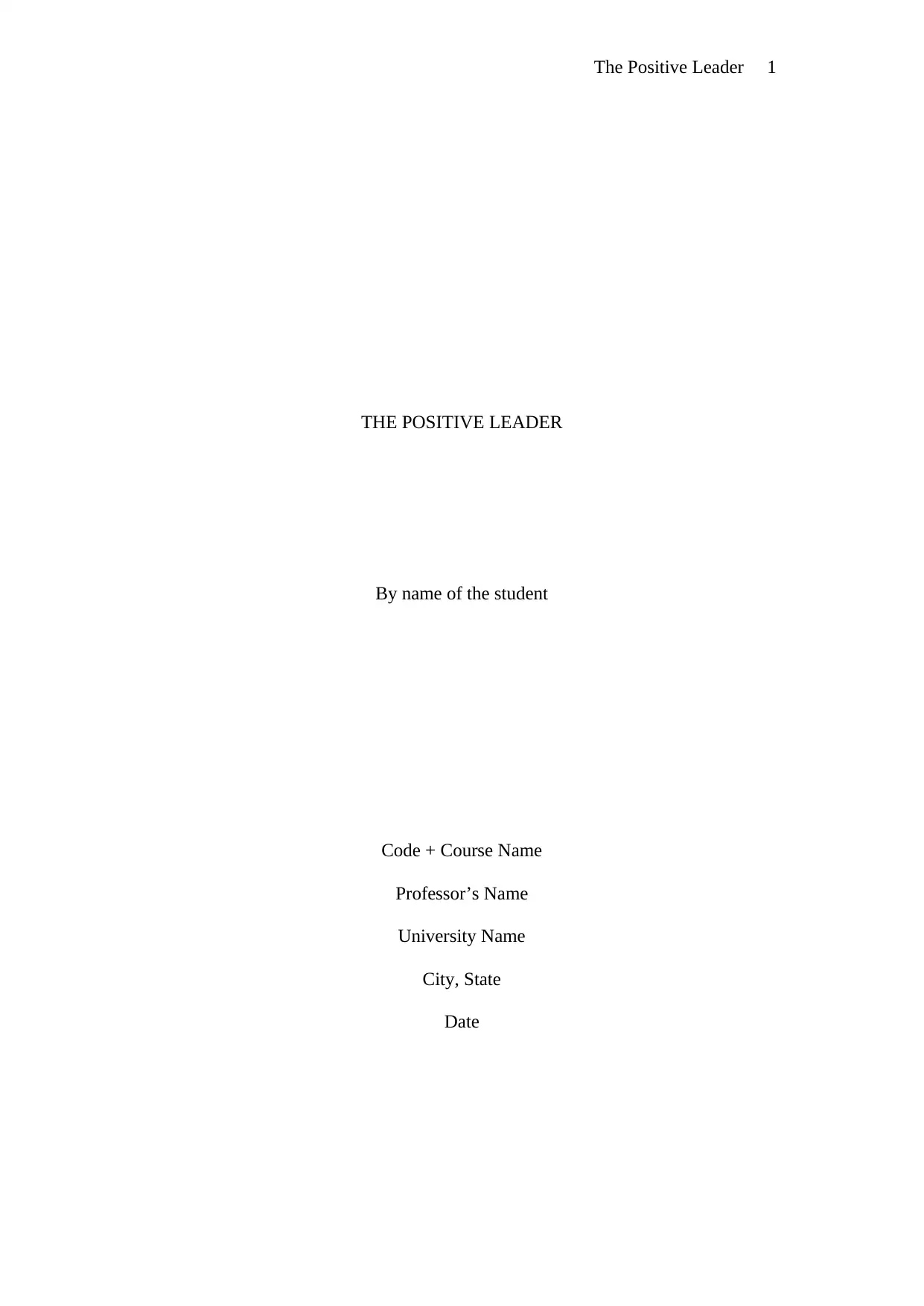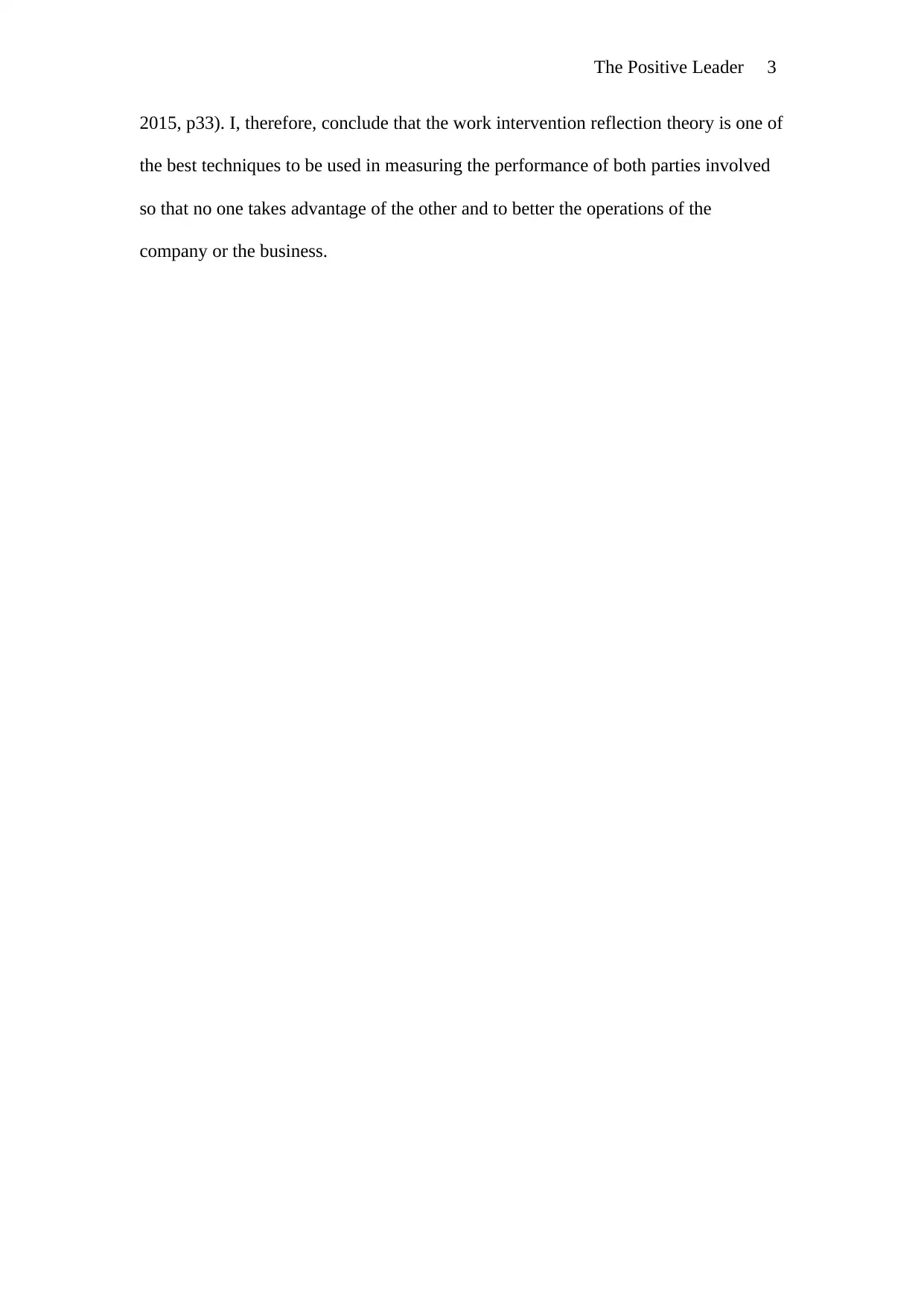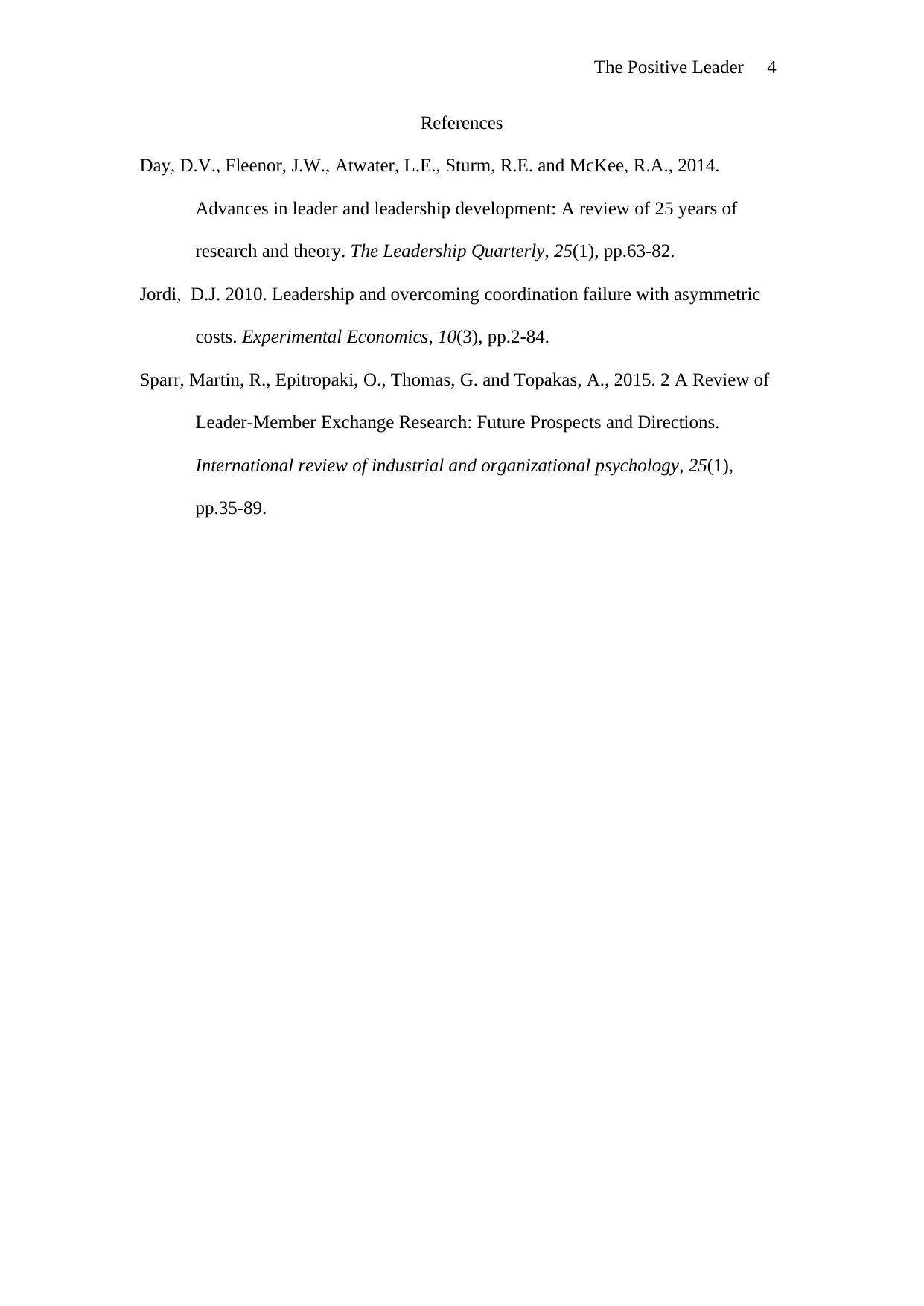The Positive Leader: Analyzing Employee Reflection and Performance
VerifiedAdded on 2023/06/06
|4
|550
|84
Report
AI Summary
This report, titled "The Positive Leader," examines the importance of employee reflection and its impact on workplace performance. The author utilizes meta-analysis to measure the effectiveness of interventions, highlighting that employee performance is significantly tied to their attitudes. The report emphasizes the value of proper control and feedback within reflections, leading to improved employee satisfaction and organizational commitment. The author references key academic sources to support the argument that employee reflection is a crucial tool for management and highlights the importance of a strong employer-employee relationship based on mutual obligations and psychological contracts. The report concludes that employee reflection is one of the best techniques to measure the performance of both parties involved in order to improve the operations of the company or business.
1 out of 4











![[object Object]](/_next/static/media/star-bottom.7253800d.svg)